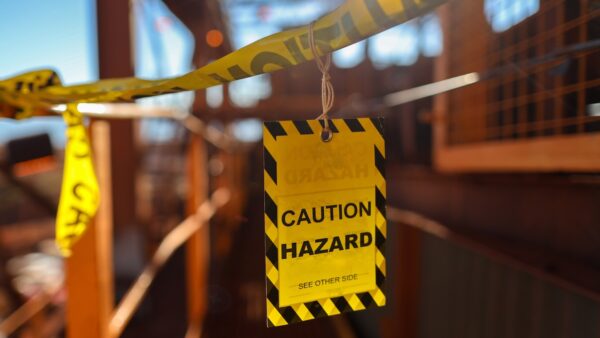UK national standards body, the BSI, has published three new standards setting out competence requirements for building safety management.
The requirements cover the roles of principal designer and principal contractor. The Department for Levelling Up, Housing and Communities is sponsoring the new standards. Separate steering groups have overseen the development of all three standards, with the Chartered Institute of Building (CIOB) sitting on each one.
The standards support industry reform, in line with the new Building Safety Act, and are intended to minimise safety risks and improve protection to consumers and occupants, including residents, in and about buildings.
The following three new standards have been published based on the core competence criteria set out in BSI Flex 8670 v3.0:
Built environment – Framework for competence of individual principal designers
Specifies competence thresholds that individuals are expected to meet when delivering or managing the dutyholder functions of the principal designer, and additional competencies for working on higher-risk buildings (HRBs).
Areas of competence include appropriate behaviour; legislative and regulatory framework for compliance; management of design work compliance; and technical framework for compliance.
Built environment – Framework for competence of individual principal contractors
Specifies competence requirements for the dutyholder role of principal contractor. It also describes specific competences common to all principal contractors and those which are additional for those undertaking the role on HRBs.
It covers roles and responsibilities; skills, knowledge and experience; behaviours and ethics; additional competences for higher-risk buildings; and limits of competence.
Built environment – Competence requirements for the management of safety in residential buildings
Specifies competence requirements for managing safety in residential buildings and other developments incorporating residential accommodation. It also gives guidance on detailed competences and the assessment of competence.
It covers competence and commitment in regard to building structures and building systems, including building services; interaction of systems and components; operational practices necessary to maintain buildings safe for occupants; risk management; managing the golden thread of information, including other digital information; managing change, including the consequences of human behaviour; leadership, communication and planning skills; and personal commitment to ethical behaviour and professional standards.
The PASs are published as part of the government-funded Built Environment Competence programme. They have been developed by three steering groups made up of built environment professionals.
Scott Steedman, director-general of standards at BSI, said: “We are delighted to announce the launch of three new standards, published as part of BSI’s Built Environment Competence Standards (BECS) programme, to provide an agreed, common approach for industry to embed building safety competence for design, construction and building management at a senior level.
“This is a major step forward which has the potential to support real change in the industry understanding of building safety in the years and decades ahead.”
Steve Coppin, chair of CIOB’s health and safety special interest group, said: “This is an opportunity for all construction professionals to benchmark and reflect based upon their individual and corporate roles against the criteria stated in the competence frameworks and competence requirements.
“It is extremely important to realise that those who specify, or change the bill of quantities, or change the design specification, will also be deemed as a designer.
“However, I am surprised there is still no independent body being set up, via the Department for Levelling Up, Housing and Communities (DLUHC) or the Building Safety Regulator (BSR) to ensure there is consistency in third party accreditation for the roles of principal designer and principal contractor.”
Steering Groups include:
PAS 8671
- Aecom
- Allies and Morrison
- Architects Registration Board
- Association for Project Safety
- Chartered Institute for Architectural Technologists
- Chartered Institute of Building
- Department for Levelling Up, Housing and Communities
- Edinburgh Napier University
- Health and Safety Executive
- Institution of Fire Engineers
- Institution of Occupational Safety and Health
- Institution of Structural Engineers
- Local Authority Building Control
- L&Q group
- National Fire Chiefs Council
- Royal Incorporation of Architects in Scotland
- Royal Institute of British Architects
- Royal Institution of Chartered Surveyors
- The Royal Society of Ulster Architects (Northern Ireland)
PAS 8672
- British Approvals for Fire Equipment (BAFE)
- Chartered Institute of Building (CIOB)
- Construction Industry Training Board (CITB)
- Department for Levelling Up, Housing and Communities (DLUHC)
- Engineering Council
- Federation of Master Builders (FMB)
- Fire Sector Federation
- Health and Safety Executive (HSE)
- Institute of Clerks of Works and Construction Inspectorate (ICWCI)
- Kier Group
- Loughborough University
- Royal Institute of British Architects (RIBA)
- Sir Robert McAlpine
- Vistry Partnerships
- Wates Group
PAS 8673
- Association of Residential Managing Agents
- British Property Federation
- Chartered Institute of Building
- Construction Products Association
- Consumer and Public Interest Network
- Department for Levelling Up, Housing and Communities
- Engineering Council
- Health and Safety Executive
- Institute of Residential Property Management
- Institute of Workplace and Facilities Management
- Institution of Occupational Safety and Health
- Local Government Association
- National Fire Chiefs Council
- National Housing Federation
- Royal Institution of Chartered Surveyors











